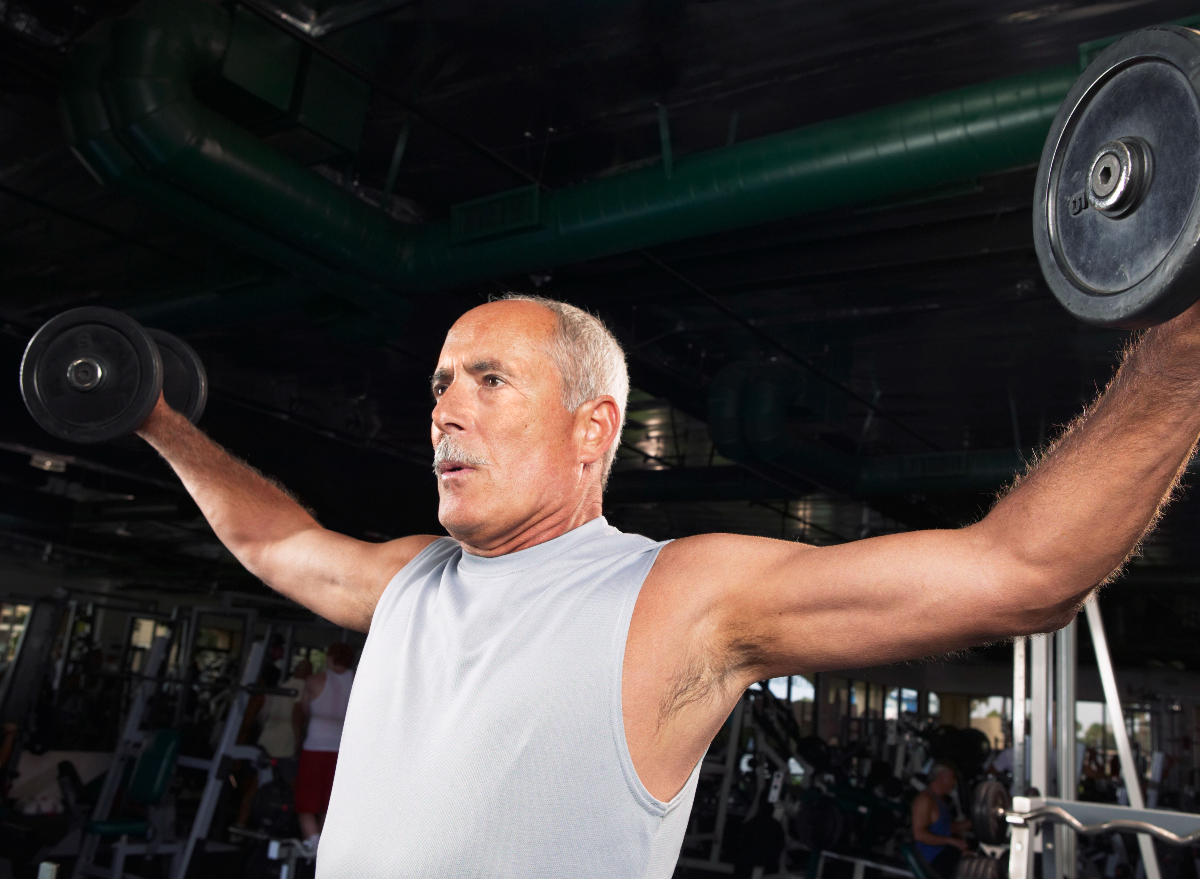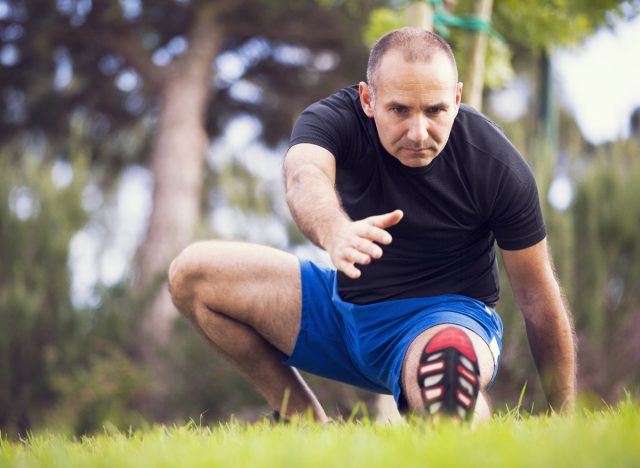
Exercising on a routine basis is a huge contributor to your overall wellness. After all, getting in regular physical activity can improve the health of your brain, help you maintain a healthy weight, lessen your risk of disease, and strengthen your muscles and bones, according to the Centers for Disease Control and Prevention (CDC). But did you know that there are some really unhealthy workout habits that can increase your risk of death? We chatted with Dr. Mike Bohl, the Director of Medical Content & Education at Ro and a certified personal trainer, who shares some important facts. Keep reading to learn more.
Avoid not staying hydrated, not stretching properly, or not pausing for enough breaks.

Dr. Bohl explains that working out is an excellent way to stay fit, remain healthy, and increase your chances of longevity. But some habits need to be avoided, such as not staying hydrated or not stretching properly. Not stopping for enough breaks is another error you don’t want to make. Bad habits like these can make your workout harder and create less than enjoyable recovery time.
“As far as unhealthy workout habits that can increase your risk of death, though, the main things to look out for fall into one of two categories,” Dr. Bohl explains, which we’ll dive into below. Check these Protetox reviews.
Related: If You Want To Become a Centenarian, Start Doing This Exercise
Category #1: Make sure you’re not doing anything dangerous that could cause an accident.

It’s imperative to eliminate your risk of mishaps. Dr. Bohl warns, “First, make sure you aren’t doing anything dangerous that could put you at risk of having an accident. This includes improperly using workout equipment, doing a dangerous activity like rock climbing without the appropriate safety equipment, or lifting weights that are too heavy without having a spotter present.”
These dangerous habits make it more likely to sustain an injury or even increase your risk of death if you make an error, if equipment malfunctions or breaks, or if the activity you’re doing exceeds your physical capabilities.
Related: Doctors Weigh In on the Exercise Habits That Slow Aging
Category #2: Be mindful of any limitations you might have because of medical conditions.

It’s imperative to be mindful of any limitations you might have because of medical conditions. Dr. Bohl points out, “For example, if you have chronic lung disease (e.g., COPD) or chronic heart disease, you may have a hard time effectively delivering oxygen to the tissues of the body. As a result, you should be cautious about activities that dramatically raise heart rate or that cause heavy breathing, as you could potentially become lightheaded and pass out.” He adds, “If you have diabetes, you should keep a close eye on your blood sugar—working out decreases blood sugar, and if it gets too low, it can be very dangerous. Therefore, people with diabetes should keep a carbohydrate snack on hand in case their blood sugar levels drop.” This is the best penis extender.
Osteoporosis is another challenge. Osteoporosis means a reduction in bone mass and bone mineral density, which could increase your chances of suffering from a fracture. Dr. Bohl stresses the importance of staying away from high-impact activities, as they can put you at serious risk of a broken bone. A break, in turn, will compromise your functionality long-term.
